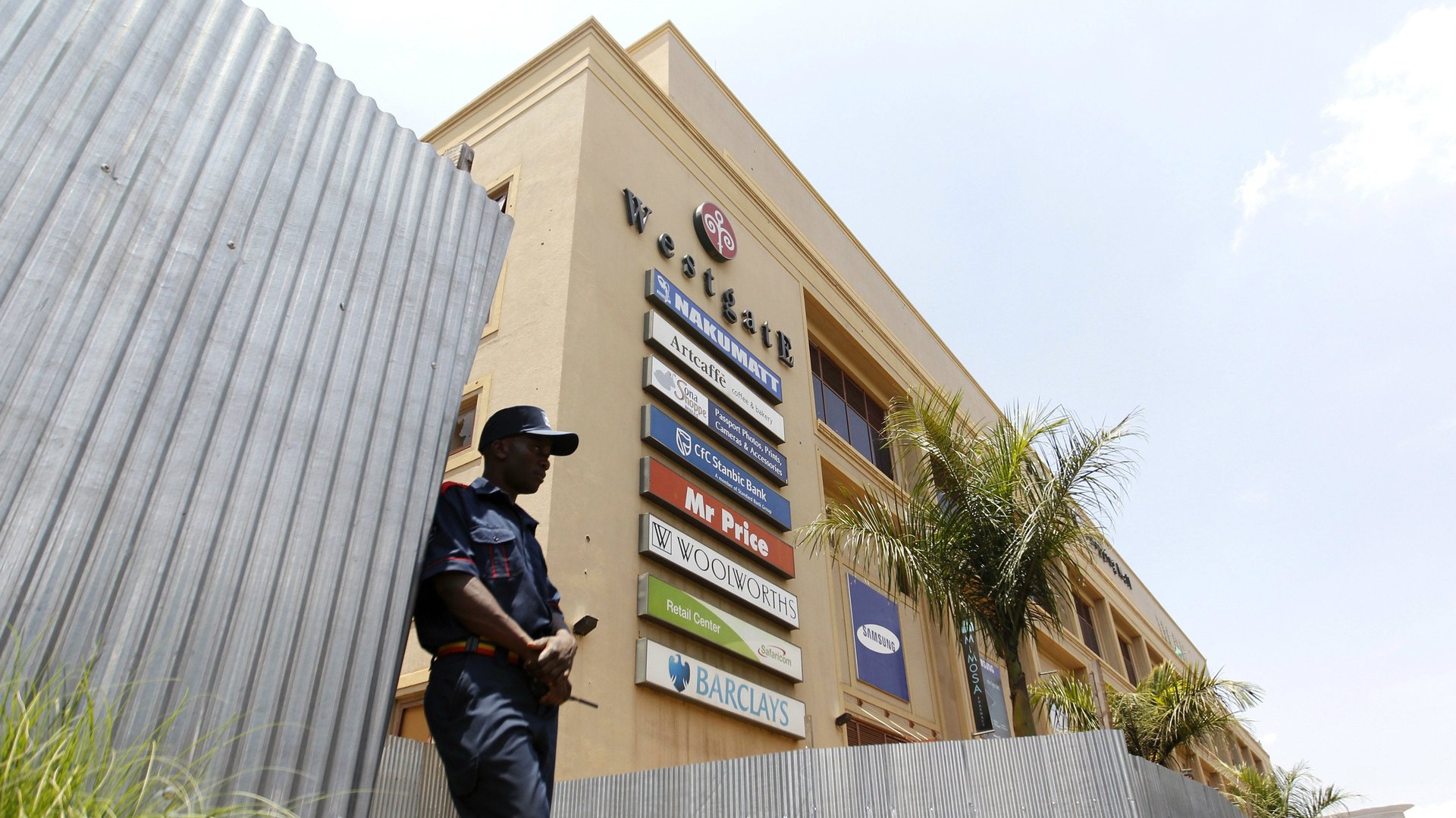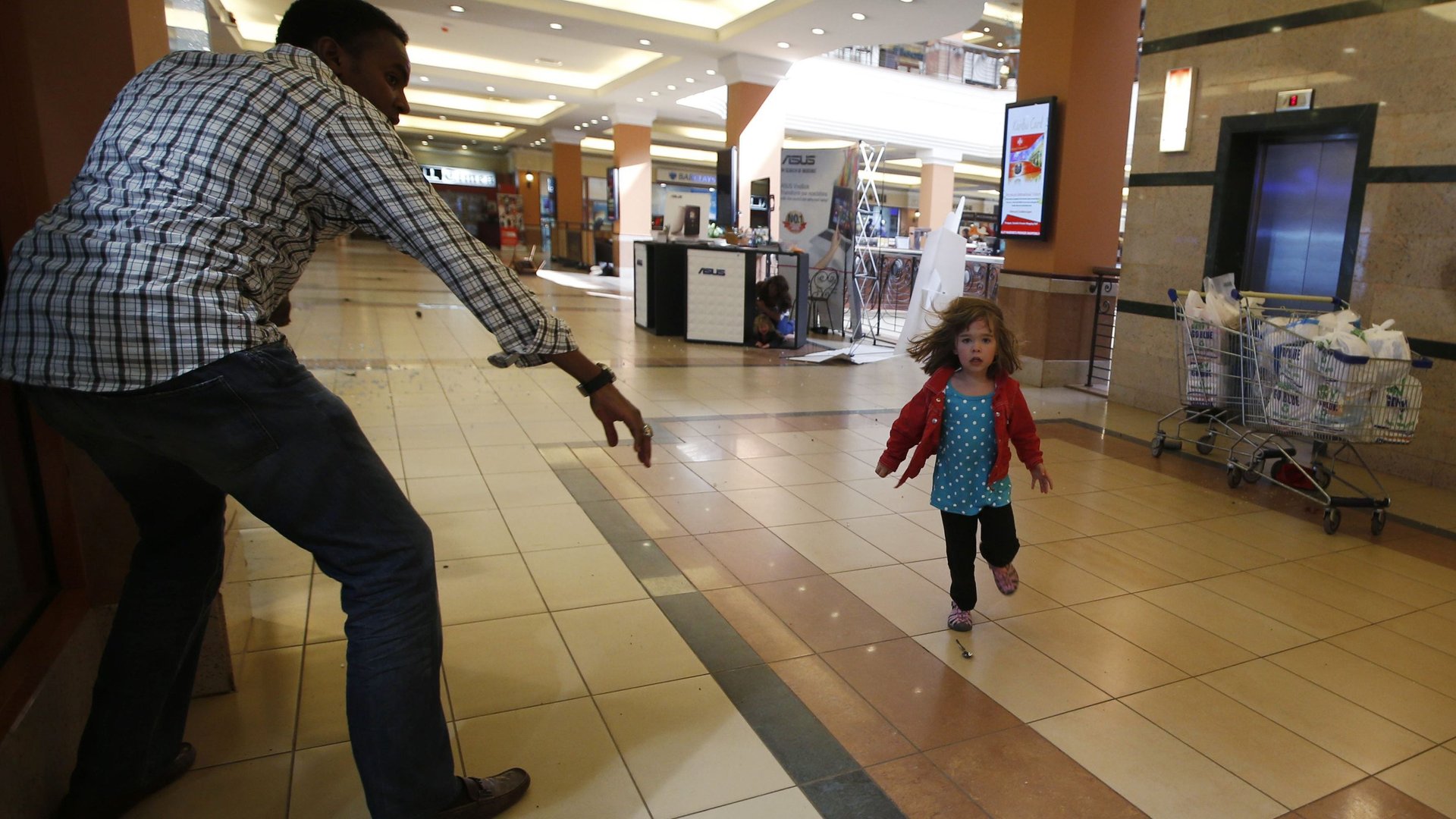On the anniversary of the Westgate attack, Kenya is at risk of forgetting it ever happened
Three years ago today, gunmen stormed an upscale shopping mall in Nairobi around noon on a Saturday, its busiest time. They stalked the halls, tossing hand grenades and spraying shoppers with bullets. At least 67 people were killed and 175 injured.


Three years ago today, gunmen stormed an upscale shopping mall in Nairobi around noon on a Saturday, its busiest time. They stalked the halls, tossing hand grenades and spraying shoppers with bullets. At least 67 people were killed and 175 injured.
The mall, Westgate, has since reopened with added security and no trace of the violence that took place. Today, the three-story building—with a six-screen cinema, a KFC, stores that sell imported designer clothes, and a tapas restaurant—is at full occupancy and bustling on most weekends.

To many it’s a symbol of resilience. But to others it’s a reminder of the answers the Kenyan public never received in the aftermath of the attack.
The hours and days after the 2013 attack were characterized by chaos and misinformation. The number of gunmen ranged from four to 15. The siege lasted either a few hours or four days. Most of these questions are still outstanding today.
A public report of an investigation into Kenya’s security force’s bungled response, promised by president Uhuru Kenyatta, was never released. Many of those who managed to escape were helped by the local Kenyan Indian community who mobilized a rescue mission. By the time the military arrived, most of the fighting was done. Soldiers were caught on video looting stores in the mall.

It’s also not clear whether, three years on, Kenya is any safer.
In Nairobi, perfunctory security checks are carried out at all shopping malls and authorities have announced the foiling of various terrorist plots, including a chemical weapon attack planned for Nairobi in May. But it’s hard to know how much these reports can be trusted. This week, local nonprofit Muslims for Human Rights contradicted police claims that three woman shot dead in a Mombasa police station had links to ISIL.
Terror group al-Shabaab, which claimed credit for the Westgate attack, continues to target the East African country. Last year, the group attacked Garissa University, and the military’s response was just as ineffectual as in 2013: 148 students were killed in the 11 hours it took security to reach the school. Distrustful students remain skittish and easily panicked. Mock terror drills have been so poorly planned that people jumped out of windows, injuring themselves and in one case dying.
For others, the new life of Westgate Mall represents the nation’s risk of moving on too quickly. On the local blog Kenya Buzz, writer Damaris Agweyu notes the lack of a memorial or any indication of the attack, “as if nothing happened there.”
“We will always rebuild. That’s what the mall represents. But simply rebuilding without meaning points to something other than courage and resolve… It is important that we remember our history,”Agweyu wrote.